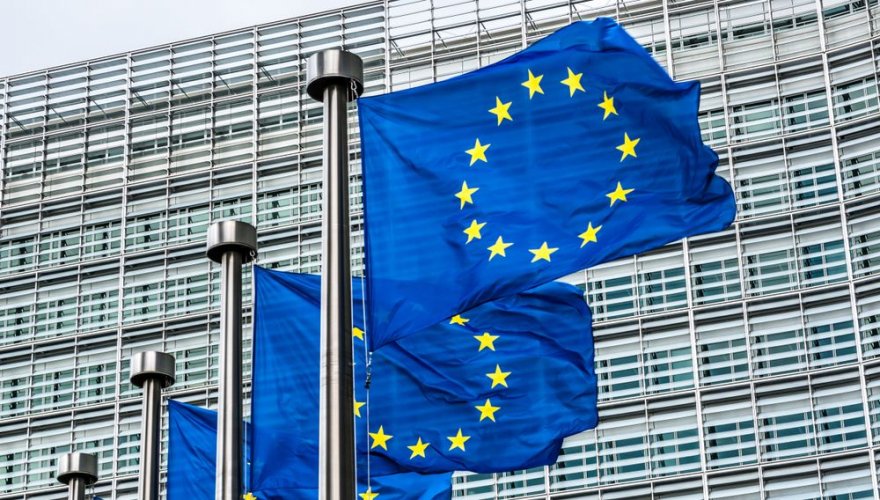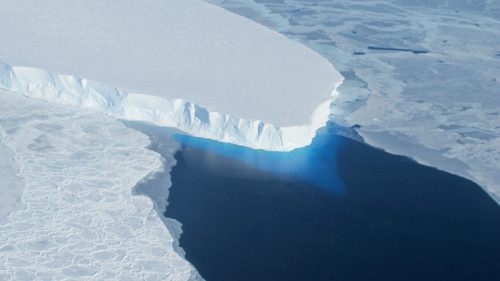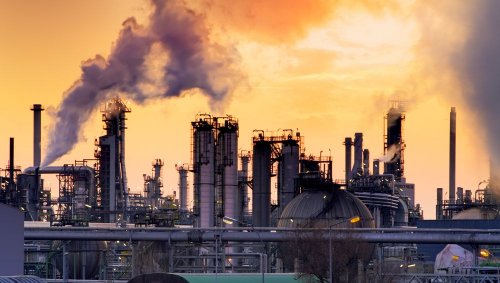The war in Ukraine has weakened the commitment of European governments to the EU climate goals, as the rejection of energy from Russia could eclipse the transition to clean energy sources.
To successfully transition away from Russian oil and gas, member countries need political leadership, reports ECFR.
The leaders of the bloc face three main problems:
- a rapid reduction in energy dependence on Russia, which would allow Member States to impose an embargo on imports of Russian oil and possibly gas;
- building new partnerships with third countries to protect European energy security in the long term;
- implementation of the Fit for 55 package to "bring to life" the green course.
Some member countries believe that the transition to clean and renewable sources will not reduce energy prices fast enough, so Austria, Germany, Greece, the Netherlands, Poland and the Czech Republic have extended the life of their coal-fired power plants.
Also, a number of countries are returning their long-term focus on infrastructure that was considered a transitional fuel before the war in Ukraine, in particular LNG and nuclear power plants.
However, war could accelerate the transition away from fossil fuels and help focus on climate challenges in the medium term.
In June 2022, the European Parliament rejected key parts of the Fit for 55 package, sending its proposals to change loans under the Emissions Trading Scheme, CBAM and the Social Climate Fund to the finalization committee.
“It showed how different member states and political groups advocate different solutions to the EU energy trilemma. It will be difficult to find a balance between them. And although on June 22 the MEPs voted to approve the compromise agreement, the parties only hid their differences,” the article noted.
A study by the European Council on Foreign Relations Associate Research Network found that member states recognize the logic of placing clean energy sources at the center of the EU's transition away from dependence on Russia, and some are already cooperating to do so. However, they should step up efforts at every turn through political leadership, mutual pressure, and the pooling of resources to create economies of scale.
The REPowerEU plan aims to rapidly reduce dependence on Russian fossil fuels by moving forward quickly and joining forces to achieve a more sustainable energy system.
In a letter to the President of the European Commission in mid-June, a broader alliance of states, namely Austria, Denmark, Germany, Luxembourg, Ireland, Sweden, Slovenia, the Netherlands, Finland and Spain, expressed concern about the direction of the EU movement within the framework of Fit for 55. They pointed to the risk that the EU's current focus on short-term energy needs will result in it falling short of its intermediate targets by 2030, which will have a negative impact on the decarbonization process.
France is generally seen as a bridge between this group and other member states, with less ambitious national climate standards. It can be an important link between green progressive leaders and other member states.
The most notable division among member states concerns the role of oil and gas sanctions in their efforts to confront Russia, and the speed with which they can end their dependence on Russian energy.
Also, the countries do not have a common vision for the definition of clean energy, in particular the inclusion of nuclear energy and natural gas in the taxonomy. The final division of the member states concerns the internal reaction to rising energy prices.
Countries such as France, Poland and Germany are likely to subsidize energy for consumers, as problems with production and supply chains, as well as Western sanctions against Russia, contribute to a sharp rise in the cost of living. Obviously, this will affect subsidies intended to offset the negative effects of the European Green Deal.
One of the necessary responses to these challenges is a common EU decarbonization narrative based on a collective approach to creating a new type of energy security. Member States should pool their resources to support the EU's energy supply, promote collective or coordinated energy agreements, and set broad guidelines for managing the social and economic impacts of the European Green Deal.
Another important aspect of the answer is the need to recognize that one must "do whatever is necessary" to solve the problem. This should include further borrowing to finance investments in the rapid expansion of the clean energy industry, as envisaged by the RePowerEU plan. Strong political leadership is needed to convince member states to act collectively and in solidarity to restore the EU's climate ambitions.
Europeans have many good decarbonization ideas, but they lack the political courage to meet their pre-war climate commitments, which are needed more than ever.
To overcome these challenges, it is necessary to adopt a definition of energy security that includes clean energy and a set of sustainable partnerships with EU neighbors and beyond to supply the raw materials needed for green technologies.
It is only natural for some Member States to revert to national approaches to an immediate challenge at the cost of long-term energy security, as citizens turn to their national leaders first to cope with the soaring cost of living. But European political leaders should see this challenge as EU energy sovereignty, not national.
Europeans will not make bold choices or benefit from economies of scale if they work at the national level.
"In the long term, sound political leadership will be vital to persuading citizens to make the necessary personal sacrifices in terms of energy consumption and costs," the article noted.
This transition to European, rather than national, energy sovereignty will have structural implications, requiring some competencies to be transferred to the EU level. The Commission's proposals for pan-European legislation on gas storage, solar panels and the renovation of public buildings are an example.
The main problem the EU now faces concerns how Russia's actions affect European climate and energy sovereignty. However, in the coming decades, the main challenge will be to engage with the main players that shape the climate agenda and have many important raw materials, materials and technologies needed for the energy transition, in particular in China, India and South Africa.
The first step in addressing both challenges is for member states to speak with one voice, creating a vision of European energy sovereignty.
France, together with partners such as Denmark, Italy, Spain, the Netherlands, Portugal and Austria, has the opportunity to build bridges between member states in partnership with future EU presidencies, bringing them together on critical aspects of the sovereignty agenda, namely climate and energy
Recall Russia's war against Ukraine put the end of the old climate policy.
As EcoPolicy reported earlier, the European Parliament approved 3 key bills to combat climate change





